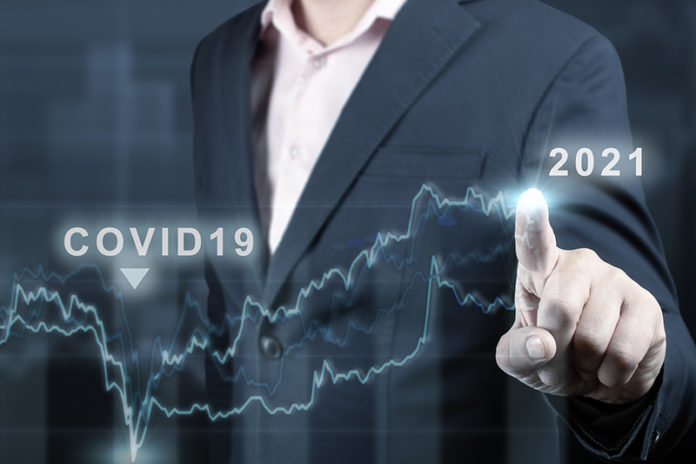The U.S. economy is doing its best impression of a Formula One car, racing at high speed while negotiating a series of twists and turns. Last year, real gross domestic product grew faster than any year since 1984, when President Ronald Reagan was running for reelection on the theme, “It’s morning in America.”
One indicator after another suggests an economy enjoying robust health. Last week, economists were pleasantly surprised when the Bureau of Labor Statistics reported that in January, the economy added 467,000 jobs — despite omicron, which spread across the country with alarming rapidity.
Unemployment remained low at 4%, compared with 6.4% a year before. A record number of people quit their jobs in November, reflecting their confidence that in today’s labor market, they can find better ones.
The stock market is up more than 12% over the past 12 months. Corporate profits reached a 70-year high in 2021. Federal tax revenues soared by 18% in the 2021 fiscal year, as more people made more money.
But … there’s always a “but.” As the columnist George Will postulated years ago, all news is economic news, and economic news is always bad. The dominant news in recent months has been inflation, once thought to be permanently vanquished but now making a comeback.
Prices climbed by 7% last year, the biggest increase since 1982. A recent CNN poll found that 80% of Americans regard rising prices as a major problem, and 63% think the national economy is in poor shape.
That notion is at odds with reality. In April 2020, when the economy was suffering a pandemic-induced collapse, CNN found, 60% of Americans thought the economy was in bad shape. That the number is higher now than it was then is a testament to the power of negative thinking.
Where does the negative thinking come from? Maybe from the psychological phenomenon known as loss aversion. As Investopedia explains, some research suggests that “the pain of losing is psychologically about twice as powerful as the joy we experience when winning.”
Since the pandemic crushed the economy, we have regained nearly 24 million jobs, and growth has rebounded strongly. But those gains get discounted because of what we have lost: stable prices. The joy of a boom doesn’t compare to the misery of inflation.
Politics plays a role. Most of the people who voted for Donald Trump in 2020 are not inclined to cheer the state of the economy, because they don’t want to think that Joe Biden has done well at managing it. They feel vindicated by every unfavorable development. They bring to mind country artist Patty Loveless, who sang, “You can feel bad if it makes you feel better.”
Biden hardly deserves all or even most of the credit for our improving fortunes. The economy is an unpredictable beast over which Washington has only limited control. But he did push through a $1.9 trillion COVID-19 relief package last spring, despite warnings that it could overheat the economy and spark inflation.
Those warnings turned out to be valid. But if you’re going to blame Biden’s spending for the rise in inflation, you have to give credit to Biden’s spending for the surge in economic growth. The outlays served to boost overall demand, which produced both results. Without the relief package, we’d have lower prices but slower growth and higher unemployment.
Much of the gloom about the economy stems from the disruptions caused by the pandemic.
Some are economic: snarled supply chains, shortages of some goods, canceled airline flights and other events resulting from workers being infected. But the fear of COVID-19, the obligation to wear a mask and get any number of vaccine shots, and endless uncertainty may do more damage to the national psyche.
We all yearn for a normal life that we fear will never return. And whether we are in the pro-mask, pro-vaccine group or the opposing camp, we are confronted with reminders every time we go out that the other side is an obstacle to what we want. Bitter feelings fester.
In our yearning, we forget that in what we recall as the happy times, we were grumpy. In December 2019, before the first case of COVID-19 in the U.S., Gallup found that 62% of Americans were “dissatisfied with the way things are going in the United States at this time.”
When you’re smiling, the song says, the whole world smiles with you. These days, though, you’ll get more company with a scowl.































